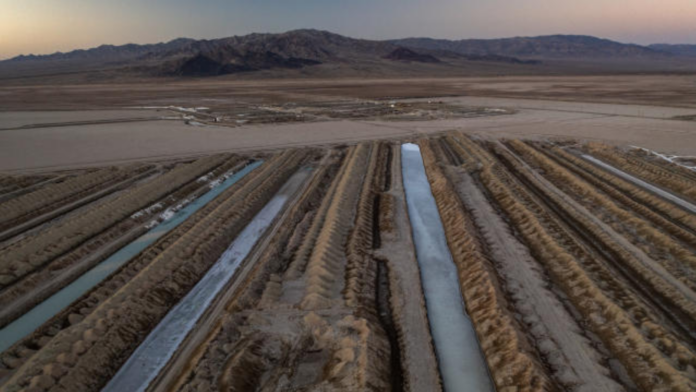Kinterra Capital, a trailblazing private equity firm from Canada, has just wrapped up an impressive $565 million fund, a pioneering move aimed at bolstering the mining of vital battery minerals. This significant financial boost aligns perfectly with the increasing drive by governments in North America to enhance the sourcing and production of essential battery materials.
This fund, which saw an overwhelming response, is set to make strategic asset-level investments across North America, Western Europe, and Australia over the next 8 to 10 years. Kinterra’s focus? Pouring resources into lithium mines, cobalt, nickel, and graphite operations, battery manufacturing facilities, energy storage solutions, and plants for processing raw materials. Additionally, they’re investing in tech essential for extracting, processing, and recycling critical battery minerals.
Kinterra’s impact is already being felt. The company has made significant investments in several key assets, including Canon Resources, which operates nickel projects in Western Australia, a nickel processing plant in Quebec, and White Pine North, a major copper project in the U.S.
Cheryl Brandon, co-founder and co-managing partner at Kinterra, emphasizes the importance of their mission. The last decade’s underinvestment in critical minerals has created a ripe opportunity for well-valued assets needing capital infusion, especially as the world pivots towards sustainable energy sources. Kinterra’s unique blend of active management, financial resources, deep sector knowledge, and technical expertise positions them perfectly for developing assets across the value chain.
Investing at the asset level gives investors more control but also involves greater risk. To mitigate this, Kinterra’s team comprises experts in metallurgy, chemical engineering, geology, and mining engineering, ensuring smart and sustainable investment decisions.
Kinterra’s vision extends beyond mere investment. They plan to collaborate with leading automotive OEMs, battery manufacturers, and other partners in structured transactions that address the challenges in the EV supply chain. Kamal Toor, another co-founder and co-managing partner, articulates their goals: securing critical mineral supply, diversifying sourcing from stable regions, and ensuring socially responsible practices.
Their strategy rides on the tailwinds of robust downstream demand, global net-zero efforts, and strategic government initiatives aimed at bringing material supply chains back to home ground.
Government initiatives, like President Joe Biden’s Inflation Reduction Act and similar movements in Canada and the European Union, are catalyzing this shift towards regionalizing the industry. These measures are designed not just to stimulate local industry but also to reduce reliance on external sources like China for lithium-ion battery supply and manufacturing.
In Canada, the push towards EVs and energy transition is evident. The government has earmarked billions, including significant funding for Stellantis and LGES to set up an EV battery plant in Ontario, and is investing heavily in critical material mining.
Similarly, the EU Green Deal Industrial Plan aims to meet ambitious targets in raw material mining and recycling, setting a course for the region to be more self-reliant by 2030.
To meet these global goals, a dramatic escalation in mining and exploration projects is required. McKinsey’s projection of a $3 trillion to $4 trillion increase in investments in mining, refining, and smelting by 2030 highlights the scale of this endeavor. Kinterra Capital is positioning itself as a key player in bridging this significant raw material gap.





